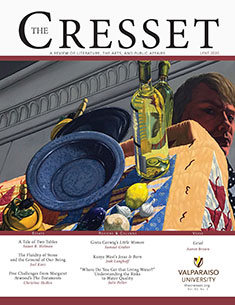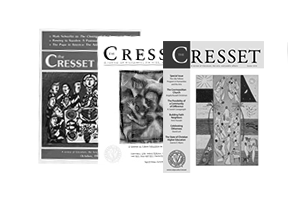I don't always agree with the artistic judgments of the juries at the Cannes Film Festival. In 1991, for instance, they awarded their top prize to the Coen Brothers' Barton Fink, a pretentious and ultimately lurid picture that should only be remembered as the Coens' least successful work. In 1996, however, the Cannes juries were spectacular. The Palme d'Or went to Mike Leigh's Secrets and Lies and the Grand Jury Prize went to Lars Von Trier's Breaking the Waves, two of my favorite three films of the year (along with the Coen Brothers' Fargo). Riding the crest of their successes at Cannes, the two pictures went on to garner Oscar attention. Brenda Blethyn and Marianne Jean-Baptiste both got acting nominations for Secrets and Lies, Mike Leigh got nominations for both directing and writing, and the film itself was nominated for Best Picture. Emily Watson, meanwhile, was nominated for her starring role in Breaking the Waves. Though these two movies are both about working-class Brits, they are entirely different in style. Leigh's favors gritty realism while Von Trier's is metaphorical and mystical. Secrets and Lies has won more unqualified acclaim, but Breaking the Waves is the more daring. Both are deeply satisfying.
Family Matters
Mike Leigh makes movies unlike anyone else. Leigh's artistic process is astonishingly collaborative. First, he imagines characters and selects actors to portray them. Next, in individual discussions with his players, he creates a back story for each character, demanding that his cast members participate in shaping the people they will play. And then he designs situations for these characters to meet one another. But when they meet, they do so, initially, without a script. Each actor in a given scene is asked to talk, in character, to the others in the scene. This interaction, rehearsed sometimes for weeks in the presence of the director, drives the creation of a screenplay. Only then is the camera finally turned on and the product of this collaborative endeavor filmed. And at that point, all questions about character motivation having long since been resolved, Leigh demands an absolute adherence to his script. No one else makes movies this way. And no one else makes movies that resemble those by Mike Leigh.
Leigh's four theatrical features, High Hopes (1988), Life Is Sweet (1990), Naked (1992) and now Secrets and Lies, share with Henry David Thoreau the notion that "Most men live lives of quiet desperation." Leigh's films look at common people, a motorcycle courier in High Hopes, a lunch wagon proprietor in Life Is Sweet, a homeless man in Naked and a factory worker and her family in Secrets and Lies. Movie characters normally wrestle with huge problems (saving New England from a killer shark or saving the world from an alien invasion). The problems of Mike Leigh characters are those encountered by most of us: getting and keeping a job, finding love, raising a family. Leigh finds stirring drama in everyday living. And he infuses his characters with tremendous dignity. But he never romanticizes them for a second. He always displays them with their weaknesses and failings in plain view. The narrative in Secrets and Lies is triggered by a young black optometrist named Hortense (Marianne Jean-Baptiste) whose adoptive parents die when she's in her mid-to-late twenties. Sometime later, Hortense decides to search out her birth mother. To her considerable perplexity, her birth mother turns out to be a white woman, an emotionally fragile factory worker named Cynthia (Brenda Blethyn). Cynthia's own mother died when she was a young girl, and she was charged with raising her younger brother Maurice (Timothy Spall). In her teens Cynthia turned promiscuous, twice giving birth out of wedlock, first to Hortense, later to Roxanne (Claire Rushbrook). Cynthia was only 16 when Hortense was born and she gave the baby up for adoption without ever seeing her. She was older when she had Roxanne and chose to keep her. Now Roxanne works as a council road sweeper and lives with her mother with whom she bickers constantly.
Among Cynthia's many heartaches is the distance that has developed between her and Maurice (pronounced Morris). Maurice has done remarkably well for himself. He's a portrait and wedding photographer, and he's made enough money to locate himself and his wife, Monica (Phyllis Logan), in a nice suburban house with guest bedrooms and his and her bathrooms. Monica finds Cynthia trying (which Cynthia is), and as a result, Maurice doesn't see his sister as often as he should. He feels guilty about this and feels it's fair that Cynthia feels resentful. But these charged feelings just make things more difficult when they do get together. As the story develops, first Hortense contacts and introduces herself to Cynthia. Then Maurice invites Cynthia and Roxanne to his house for a barbecue to celebrate Roxanne's birthday. And Cynthia, in a typically ill-considered impulse, invites Hortense to accompany them to the party.
Leigh's work is so penetrating and searingly true, one hates to register complaints. At two hours and 22 minutes, however, he could have profitably trimmed things some in Secrets and Lies. He could have eliminated, for instance, an entire passage about an unhappy character named Stuart (Ron Cook) who sold Maurice his photography business and resents what a success Maurice has made of it. And he could have cut down the number of vignettes provided by various clients who hire Maurice to take their photographs. These vignettes are fabulously well observed and frequently quite funny, but fewer might well have been better. The picture makes several other small missteps as well. Though we find Hortense's desire to know her birth mother convincing, we remain curious and unsatisfied about Hortense's relations with her two adoptive brothers. Leigh simply fails to address why these two men are not providing Hortense greater emotional sustenance. Elsewhere, Leigh seems to make too much of Monica's inability to have children. Of course, this is a heartache, but it's hardly a dirty secret.
Such small failings, though, hardly minimize the power this film develops over the course of its 142 minutes. The astounding detail with which Leigh prepares his movies pays dividends in ways few films ever do. Even the seemingly inconsequential characters are fully realized. A social worker (Lesley Manville) who helps Hortense search for her birth mother at first seems just going through the motions, a little distant and a little false. But gradually we understand her as simply the victim of overwork and dull routine. Her ultimate display of genuine kindness, then, is the kind of heroism Leigh repeatedly discovers in his characters. Leigh is always surprising us. Roxanne's boyfriend Paul (Lee Ross), for instance, is not at all the jerk we suspect him at first meeting. Nor is Monica the bitch she first appears. People are the product of their experiences, Leigh submits, and we need to forgive them their rough edges whenever we can.
At the center of this film resides the character of Cynthia, as dysfunctional a woman as cinema has ever tried to portray. Cynthia is a complete mess—neurotic, whiny, exasperating. And yet, as we get to know her, as we discover a boulder of genuine goodness at the core of her mountainous neediness, we spy the theme that permeates this and every Mike Leigh film. People are frequently dislikable, in small if not in large ways. But suffering is usually at the root of people's inability to relate to others as well as they would like. So we need to give each other a break. We need to ferret out the decency Leigh feels is almost always present. And those of us whom life has blessed a bit need to view the world as Maurice does. We need always to remind ourselves that "There, but for the grace of God, go I."
The Tintinnabulation of Faith, Sacrifice and Love
An early establishing shot in Von Trier's Breaking the Waves focuses on a church, an austere white church in a small town on a desolate stretch of Scottish seacoast. There is a steeple over the church, and in the steeple there is a bell tower. But in the bell tower there are no bells. There are no bells to call the people to faithful worship, no bells to clang the joy of a union sealed in holy matrimony, no bells to toll the sorrow over a loved one surrendered to Christian burial. There are no bells in the bell tower because there is no love in the church, because the people who congregate there do so in the name of judgment, never in the name of mercy. The absence of these bells provides Von Trier his magnificent central metaphor.
Motion pictures seldom attempt to do so, but in the hands of an inspired director, the medium can deliver a powerful religious experience. Robert Benton's Places in the Heart did so, as did Roland Joffe's The Mission, John Duigan's Romero and Tim Robbins' Dead Man Walking. Breaking the Waves is another such picture. But religious pictures have ways of making certain viewers uneasy, and as a result, I believe, Breaking the Waves has elicited the entire spectrum of critical responses, contemptuous dismissal as well as lavish praise. Great work has often met with such diverse reaction. Breaking the Waves is not a film which strives to make its viewers comfortable. It's a picture which dares to embrace the notion of an active divine presence in the lives of modern humanity. Some viewers may find its forthright mysticism puerile. But others will find this picture emotionally gripping and spiritually challenging. I found it absolutely brilliant.
Filmed with the hand-held cameras of cinema vérité and set in the early 1970s of flared collars, paisley shirts, bell-bottoms and hot pants, Breaking the Waves tells the story of Bess McNeil (Emily Watson), a small-town Scottish woman in her early twenties. Bess lives at home with her parents and her sister-in-law Dodo (Katrin Cartlidge) and does volunteer janitorial work at the strict Calvinist church that provides the focal point of her entire community. With the grudging permission but continuing disapproval of the church elders, Bess marries a man from outside the village. Her boisterous, faintly immature husband Jan (Stellan Skarsgard) works on an offshore oil rig. He drinks and smokes marijuana and roughhouses with his mates. Bess, in contrast, knows practically nothing of the world. She's a virgin when they marry, and her devout Christian faith is such that she believes God is intimately involved in the daily events of her life.
Bess and Jan's honeymoon is rapturous, and Bess's love for her husband is so much the center of her life that she's emotionally destitute when Jan has to return to work. During his absence, she prays for his early return, finally confronting the Almighty with demands rather than requests. Thus, when Jan is severely injured in his work and returns home early but paralyzed, Bess blames herself. Jan, naturally, is distraught over his condition. And in a frustration of longing, he proposes that Bess take a lover. He says that if she describes her erotic encounters to him he might be able to live, whereas otherwise he will surely die.
Bess is reluctant, of course. But after several false starts, she succeeds in picking up men in buses and bars. And though she detests these encounters, she continues to seek them out because Jan's condition improves whenever she has relations with another man. In the end, she consciously risks her life by venturing to a place even the most brazen prostitutes avoid. Her outraged small town banishes her for these acts, but she continues them because she is convinced that Jan can be cured in no other way.
Emily Watson couldn't possibly deserve more the acclaim she has garnered for her performance. She is the embodiment of innocence and devotion. Looking like a young Sarah Miles, she has a beatific smile that is full of openness and wonder. She has huge, gorgeous eyes that express a vast array of emotions. At various times, without the crutch of spoken words, her plainly pretty face communicates yearning, anger, fear, frustration, rapture, uncertainty, determination, desperation and peace. In a movie year brimming with outstanding female performances, no one has been better than Emily Watson.
But Watson is hardly the only thing to admire in this picture. Von Trier's screenplay is a masterpiece of complex character development. Dodo, for instance, is richly complicated. There is no question that she sincerely loves her sister-in-law. But though Dodo is herself an outsider, she has taken on some of the community's grim suspiciousness. And at a critical juncture, she decides to interpret Jan's actions in the worst possible light. Jan's attending physician, Dr. Richardson (Adrian Rawlins) is developed in a comparable three-dimensional manner. When we first meet him, his palpable kindness makes us yearn for him to be Bess's romantic savior. We are thus of two minds when she nakedly offers herself to him. On one hand, we want him to accept her overture so that the two of them can begin a relationship. On the other, we are glad that he is too professional and decent a person to take advantage of a woman in so much emotional distress. But just as we are about to fit Dr. Richardson with a halo to wear over his knight's shining armor, he surrenders to his own emotions and pressures Bess unwisely by confessing his love for her. Moreover, when he decides to have Bess committed, his better and purer professional motives are presumably clouded by personal objectives. In his defensible scientific view, Bess needs to be removed from Jan's unhealthy influence. But, of course, by removing her from Jan, he increases his own chances for a relationship with her after she's "cured."
Jan is comparably complex. When he first proposes that Bess take a lover, it seems that he is concerned about her and not about himself. She is so young and full of life, and he is acutely aware of the tragedy of saddling her with an invalid husband. Jan tells Dodo that he hopes Bess will find someone else and leave the area for another part of Great Britain. Later, however, Jan's motives seem more selfish and, as Dodo deems them, sick. He chides Bess for the inadequacy of her sexual contacts and demands more of her in this regard. Perhaps, Jan's actions are just the ravings of a man heavily sedated with pain medication. But perhaps they are consciously cruel and controlling. Or perhaps they are an honest way of trying to maintain a physical connection with his wife. Perhaps they are a mixture of all these motivations. Whatever, this we know for sure, and this redeems Jan, as Dodo and Dr. Richardson are comparably redeemed, his love for Bess is genuine.
Profoundly religious as Breaking the Waves finally is, it paints the bleakest picture of organized religion. The Protestantism practiced in the town church is cold and joyless. It is, in addition, completely dominated by men. Women aren't allowed to speak in church; they aren't even allowed to attend funerals where the men routinely declare the eternal fate of the deceased. The self-righteous men of this town seem never to have heard Jesus' warnings: "Do not judge others, and God will not judge you; do not condemn others, and God will not condemn you," and his imperative to "Forgive others, and God will forgive you." The people of the church do not try to understand Bess. Even should they deem her to be deranged in grief over her husband's paralysis, they do not reach out to her, do not try to help or support her. Instead, they cast her out. Several New Testament passages are called to mind in the way the church members treat Bess. Literally, they stone her, as the people in John 8 would the woman caught in adultery. And in doing so they ignore Jesus' advice that "Whichever one of you has committed no sin may throw the first stone." When Bess is beaten and stripped of her dignity, lying on the side of the road, the local pastor passes by without trying to help her, like the priest in the parable of the Good Samaritan.
In the end, Bess is transformed from the woman of ill repute that Jesus calls into his ensemble to a Christ figure in her own right. Her religious convictions seem crazy in a secular world, even to people who care about her. But Bess has the gift of faithfulness. She says "God gives everyone something to be good at. My talent is that I can believe." She believes that by debasing herself, she can restore her husband's health. In a rational world this is insane. But even in a rational world, miracles happen. Like Jesus, Bess suffers a period of doubt, a feeling of having lost God's blessing in the same manner as Jesus's cry from Calvary, "My God, why did you abandon me?" But she remains true to her personal calling, to her mission of sacrifice, for she knows as the Apostle Paul writes in I Corinthians 13 that of all the virtues man may achieve, "the greatest of these is love." God embraced Jesus directly after his baptism, and in the end of Breaking the Waves Bess is immersed as well, and it is God himself who rings the bells for her. The bells ring, and in their tintinnabulation we can hear God's voice saying, "This is my beloved daughter, in whom I am well pleased."













